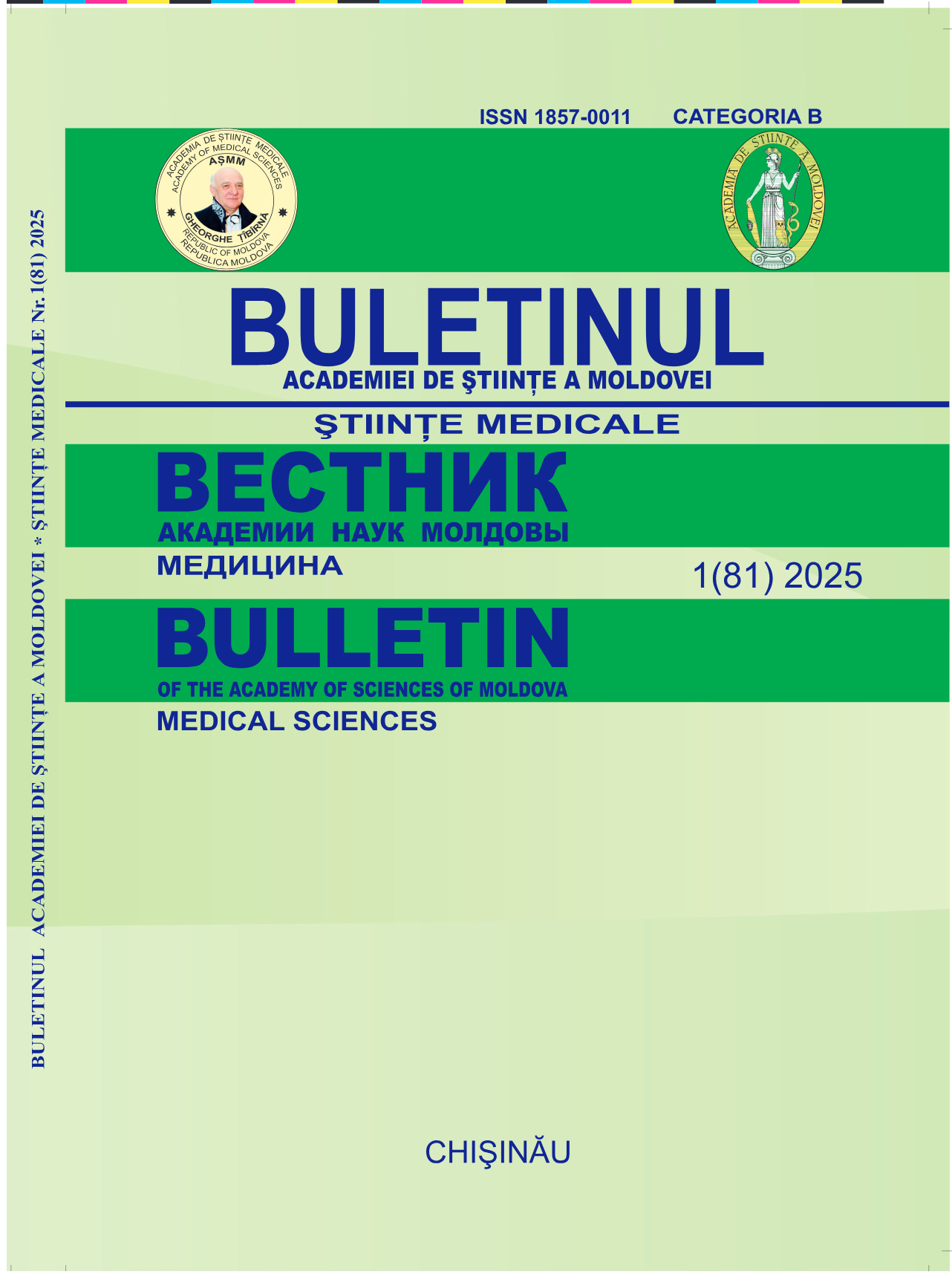Cardiac AL amyloidosis: a case presentation
DOI:
https://doi.org/10.52692/1857-0011.2025.1-81.19Keywords:
Amyloidosis, heart failure, microvoltage, echocardiography, biopsyAbstract
Cardiac amyloidosis is a rare, often underdiagnosed condition characterized by the deposition of dysfunctional amyloid proteins in the cardiac interstitium, leading to progressive heart failure. Immunoglobulin light chain (AL) amyloidosis, wild-type transthyretin amyloidosis (ATTRwt), and hereditary/variant transthyretin amyloidosis (ATTRv) are common causes of amyloid cardiomyopathy. This presentation documents the case of a 64-year-old man who presented with symptoms and signs of heart failure and conduction disturbances. Initial diagnostic evaluation suspected cardiac amyloidosis, laboratory and imaging investigations confirmed the diagnosis of immunoglobulin light chain (AL) amyloidosis. The patient continued on heart failure therapy and chemotherapy as prescribed by hematologist.
References
Merlini G., Bellotti V. Molecular mechanisms of amyloidosis. N. Engl. J. Med., 2003; 349(6):583–96.
WechalekarA.D., Gillmore J.D., Hawkins P.N. Systemic amyloidosis. Lancet, 2016; 387(10038):2641–54.
Maleszewski J.J. Cardiac amyloidosis: pathology, nomenclature, and typing. Cardiovasc. Pathol., 2015; 24(6):343–50.
Kristen A.V., aus dem Siepen F., Bauer R., et al. Cardiac amyloidosis: an underestimated cause of heart failure. Herz, 2020; 45(5):503–12.
González-López E., Gallego-Delgado M., Guzzo- Merello G., et al. Wild-type transthyretin amyloidosis as a cause of heart failure with preserved ejection fraction. Eur Heart J., 2015; 36(38):2585–94.
Falk R.H., Alexander K.M., Liao R., Dorbala S. AL (Light-Chain) Cardiac Amyloidosis: A Review of Diagnosis and Therapy. J. Am. Coll. Cardiol., 2016; 68(12):1323–41.
Maurer M.S., Elliott P., Merlini G., et al. Design and rationale of the phase 3 ATTR-ACT clinical trial (tafamidis in transthyretin cardiomyopathy clinical trial). Circ. Heart Fail., 2017; 10(6):e003815.
Siddiqi O.K., Ruberg F.L. Cardiac amyloidosis: an update on pathophysiology, diagnosis, and treatment. Trends Cardiovasc. Med., 2018; 28(1):10–21.
Gutu B., Covtun A., Caipac A., Răzlog T., Agachi S., Pascal R., Rotaru L. Features of amyloidosis in young people. Clinical case. Cercetarea în biomedicină și sănătate: calitate, excelență și performanță, Ed. 1, 20–22 octombrie 2021, Chișinău, Republica Moldova: 2021. p. 107. ISBN 978-9975-82-223-7.
McMurray J.J.V., Solomon S.D., Inzucchi S.E., et al. Dapagliflozin in patients with heart failure and reduced ejection fraction. N. Engl. J. Med., 2019; 381(21):1995–2008.
Solomon S.D., de Boer R.A., DeMets D., et al. Dapagliflozin in heart failure with mildly reduced or preserved ejection fraction. N. Engl. J. Med., 2022; 387(12):1089–1098.
Downloads
Published
License
Copyright (c) 2025 Bulletin of the Academy of Sciences of Moldova. Medical Sciences

This work is licensed under a Creative Commons Attribution 4.0 International License.



